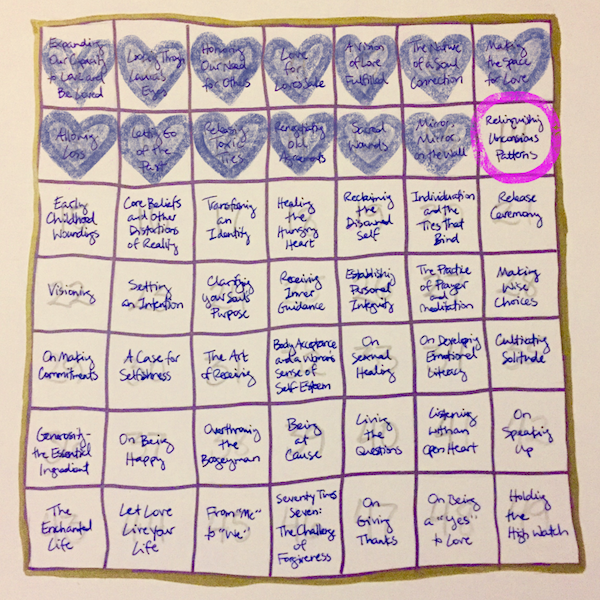You’re about to read Chapter 14. Want to start this story from the beginning? Go here.

I’ve been feeling lonely.
It sucks.
I am pretty sure PMS is playing a substantial part. But just because there is a physiological/hormonal explanation for my feelings does not make my feelings any less present.
Two months down, who knows how long to go
I miss Paul. A lot.
It sucks.
I have no idea if he is missing me and it is none of my business. And I feel like a loser for thinking about him when I have so many other blessings in my life, so many other priorities on which to focus.
And still, I miss him.
Yesterday was two months to the day that he walked away. I took myself to a concert I definitely would have rather shared with him.
It was such a special show, and it would have meant a lot to me for him to experience it too.
After all, I went with him to several concerts that were important to him.
I am pretty sure he would have done the same for me, but we separated before I could find out.
So last night I was alone, and while I’m so glad I went, I’d be lying if I said it was some sort of fulfilling, independent experience.
It was an awesome experience—and it would have been better shared. (And yes, I did try inviting a friend.)
Patterns are hard to break, but they are definitely breakable
Lesson 14 is about unconscious patterns, and it strikes me as particularly important.
Obviously patterns are huge players in our lives. Almost everything we do is based on some sort of neurological routine. And without awareness, good luck making change.
Even with awareness, it takes a lot to reprogram the brain.
“Breaking a pattern is much like breaking any addiction—difficult but certainly not impossible. It will, however, require of you an advanced level of self-awareness regarding the connection between what it is that you are doing and the results that you are getting.”—CITO p.90
Fortunately, with awareness, anything is possible.
Having quit drugs and alcohol nearly six years ago, I am very aware of this truth.
There was a time when I thought I could never go a day without substances. But I was hurting enough to want change, and humble enough to ask for help, and willing enough to follow suggestions. And by the grace of god, I’ve been sober ever since.
I’m trying to approach my “heartbreak makeover” (my “breakover”?) in a similar way.
Hence me working through Calling In “The One” like it’s my job.
You don’t have to be an emotional mess in order to improve
For the sake of my pride and/or ego (are those the same thing?), I feel the need to defend my situation.
Yes, I’m a little lonely today. And yesterday. And fine, the day before as well.
And yes, I am willing to do whatever I can to prepare myself for partnership—again with Paul or with someone new.
But I’m, not, like, at rock bottom here. I’m not, like, crying every day. Or, at least, not all day every day.
(Because now that I think about it, yeah, I do cry most days. But in a cathartic and appropriate and usually brief way. That’s healthy! And a good reason to not wear mascara.)
What I am is resilient and fierce and curious.
If there is a way to be better, I want to find that way.
And if now isn’t the time to do that, when is?
I’m self-employed and single.
Soon my business will be even busier, and I know my beloved is already en route.
But tonight, and ostensibly for the next 36 days, there is really nothing stopping me from a deep dive into self-reflection.
So it’s not that things are bad and I’m desperate for change. (Although that would be fine too.)
It’s just that change is happening anyway, so I might as well make the most of it.
Lesson 14 in practice
Anyway, the point of Lesson 14 is to look at your past relationships, observe the patterns, and take responsibility for having created those results.
There is plenty to delve into here, and delve I did.
But the key takeaway was pretty simple:
I need to prioritize my needs.
In every relationship I’ve ever been in, I told my journal, his needs have been the priority. And I have completely allowed this, sometimes deferring, sometimes instigating, but always, this dynamic. Ugh.
Why is it so hard to claim my place? God bless Paul for understanding I should, for not allowing me to cede my own significance.
As clearly indicated here, and previously observed in Lesson 11, I skew toward believing (and therefore acting like) my partner’s needs are more important than mine.
It doesn’t take a therapy session to understand where this belief and consequent pattern came from.
As Katherine puts it, “because we grow attached to that which is familiar, we often develop strong bonds with the patterns that were acted out by one or both of our parents when we were growing up.”
Ding ding ding!
And also, who cares? I mean, sure, it’s nice to have an origin story, but it’s still just a story.
What I really need is a new pattern.
And I’m pretty sure I’m on the right path to create one…
Love > fear,
Christina
Want to know what happens next? Proceed to Chapter 15.
Missed what happened before? Go back to Chapter 13, or start from the beginning.
Comments are closed.